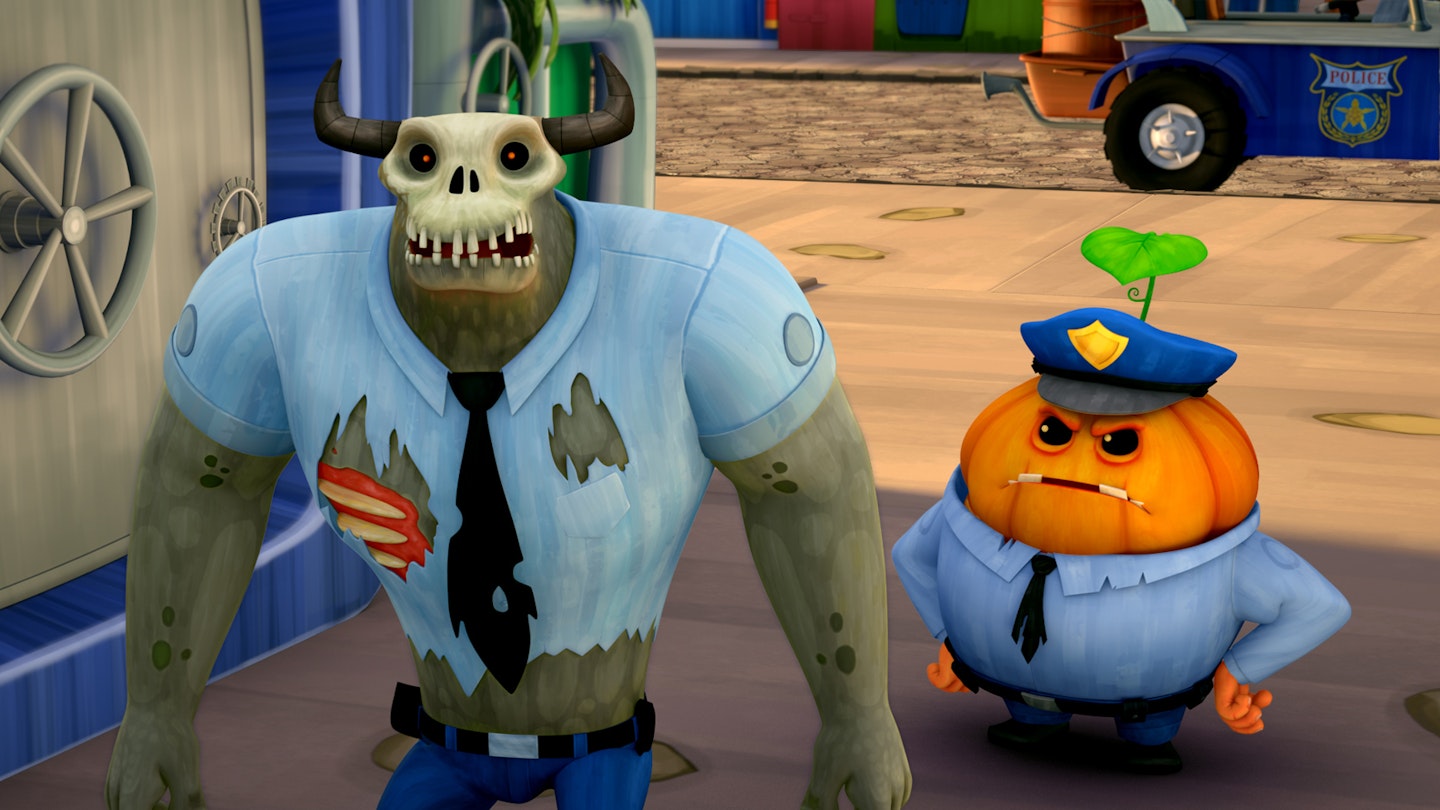Being a teenager frequently massively sucks. There’s a sudden social hierarchy in which you’re supposed to automatically know your place, you start feeling attraction to other people at a time when you’re at your most awkward, and your body is doing truly disgusting things and seemingly attempting to embarrass you whenever it can. The horrors of puberty are particularly pronounced for Lucas (Phillip Adrian Vasquez), the hero of this uninspired animation. As well as being a kid on the verge of teenagehood, Lucas is, unbeknownst to him until the most embarrassing moment possible, a monster.
It has some heart, but it has no teeth.
Lucas thinks he’s a normal boy, living with his jovial dad (Roger L. Jackson) in a normal way. The only mild oddity is that every day both he and Pops have to take some form of medicine for a non-specific condition. When Lucas neglects to take his, he discovers the medicine stops him assuming his real monster form. True identity revealed, Lucas goes on a journey to find his actual home, the self-explanatory Monster Island, and learn more about his past.
This quest is hardly the thrill it might be. Leopoldo Aguilar’s film doesn’t have a lot of fun with a premise that just begs for fantastical excess. Having a secret world entirely inhabited by weird creatures gives animators free reign to invent. It’s an opportunity that’s mostly squandered. Think of all the background and incidental gags you got in a film like Monsters, Inc., playing with the idea of monsters forming a society like our own, but where everyone has tentacles or is the size of a house. Obviously this doesn’t have the same budget that Pixar has, but there’s no price on imagination. Monster Island doesn’t create a tangible world, just a few locations with odd architecture and characters who act like humans in Hallowe’en costumes. It’s a shame because there’s some effort to make up for the lower budget by making the visuals distinct. There’s an angular, paper-cutout look to some of the art, which gives it personality, though other designs are much more smooth and generic cheapo computer animation.
It also fails to run beyond the most obvious boundaries with its central premise. Using transformation into a hulking, weird monster as a metaphor for puberty is hardly original, but there’s more material to be had from it than this. Lucas first beasts out at a party hosted by the prettiest girl in school, humiliating him at his most vulnerable moment, but after that the fact that he’s a teenager still navigating his way to his true self doesn’t much come into it. He’s just a big, strong monster who solves his problems by punching bad monsters really hard. Did nobody ever tell this kid violence solves nothing, even if you are the size of a double wardrobe?
There’s a simplistic cheerfulness to it that makes it benignly distracting, if not actually enjoyable or engaging, and at barely 75 minutes it’s all over fairly quickly. There’s nothing to differentiate it from the great swamp of other mid-priced animations about an outcast beast of some kind who discovers a secret world-saving destiny. It’s a cute, not especially novel, idea that treats having the idea as enough. It doesn’t use its monster setting as a way to kick off an interesting story, but as a way to make an overplayed story seem more interesting than it really is. It has some heart, but it has no teeth.
